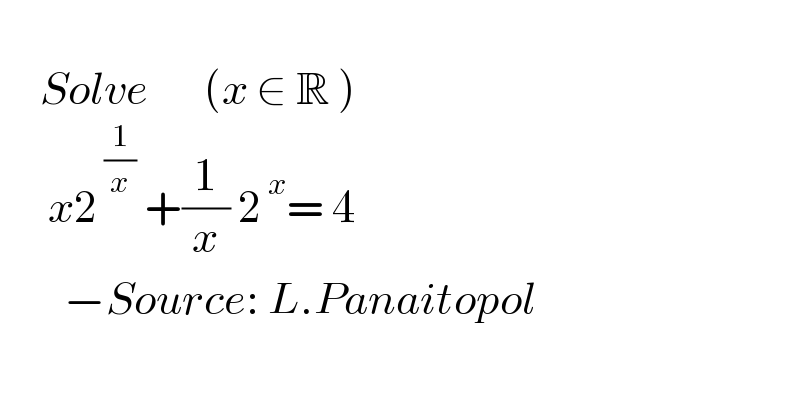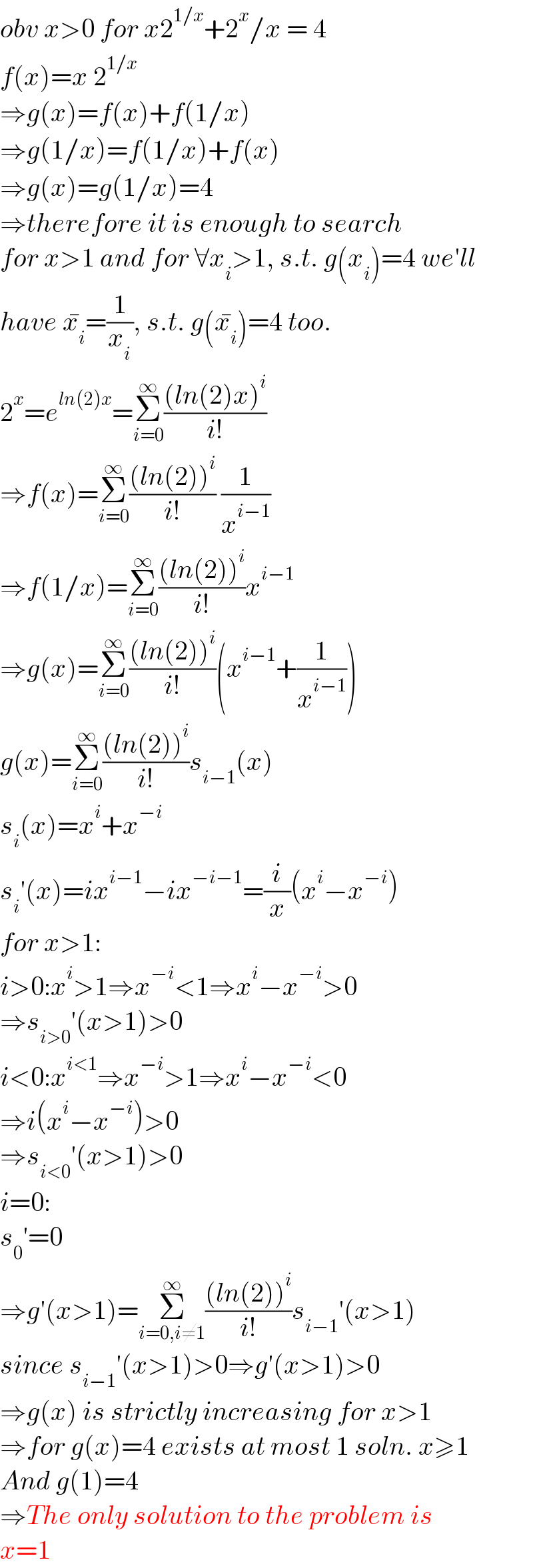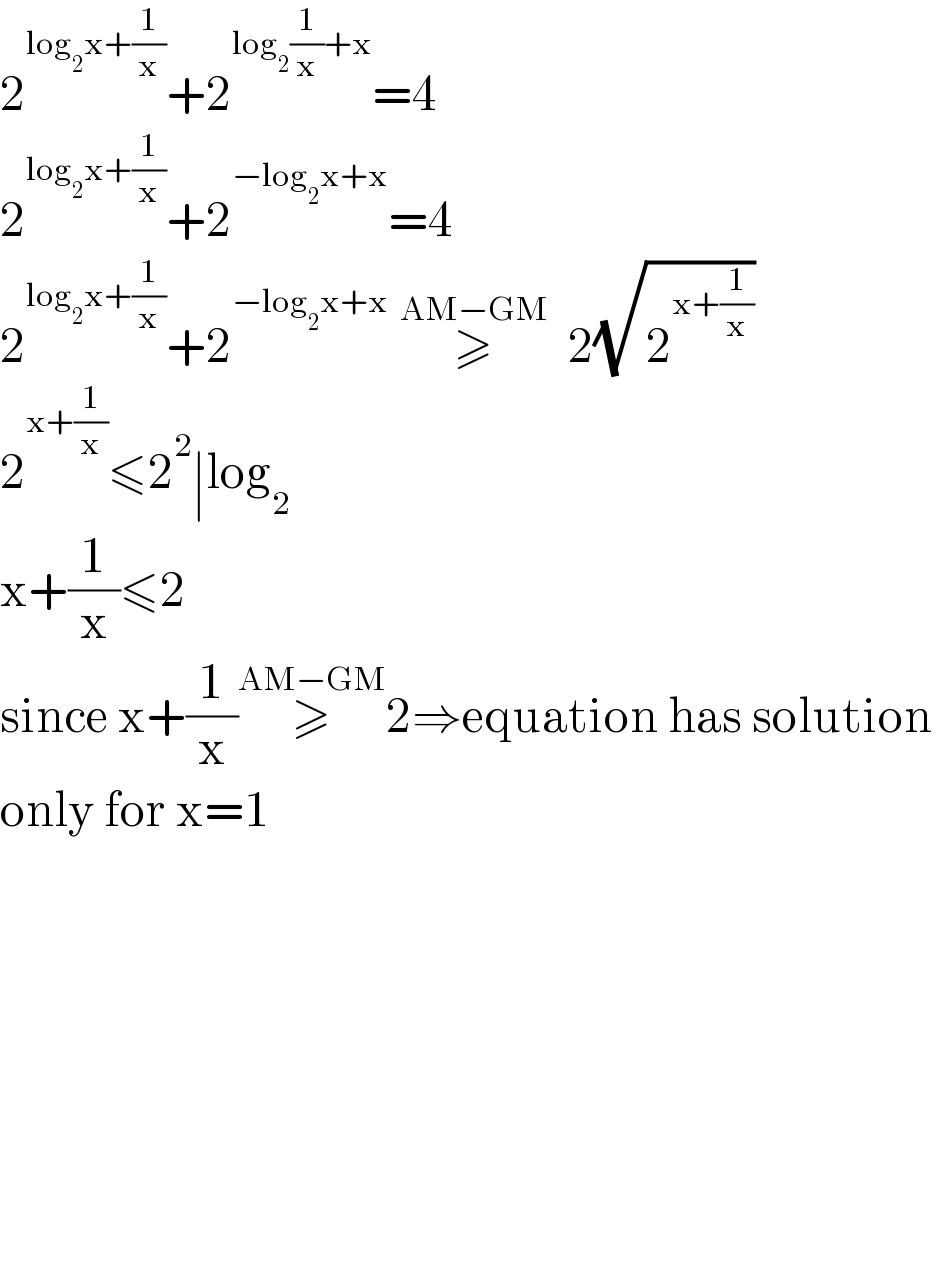
Question and Answers Forum
Question Number 173485 by mnjuly1970 last updated on 12/Jul/22

Answered by aleks041103 last updated on 12/Jul/22

Commented by Tawa11 last updated on 13/Jul/22

Answered by dragan91 last updated on 12/Jul/22

Commented by Tawa11 last updated on 13/Jul/22

